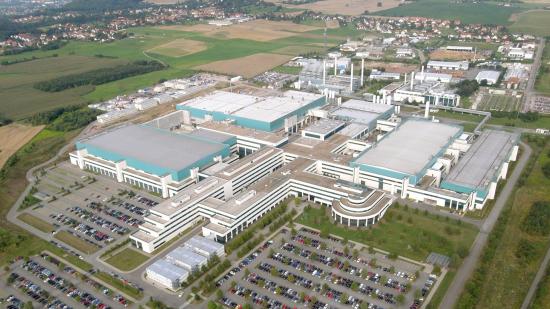GlobalFoundries (GloFo) is seeking to block all TSMC manufactured semiconductors from entering the US and Germany, its two main bases of operation. The company alleges that TSMC, the manufacturer of AMD and Nvidia chips, has infringed on 18 of GloFo’s manufacturing patents, and has filed lawsuits with both the US International Trade Commission, district courts of Delaware and Texas, and the regional courts of Dusseldorf and Mannheim, Germany.
In a press release on its site (via Reuters), the pure-play foundry outlines its most recent lawsuits seeking to ban outright imports of TSMC products, which it claims are manufactured by infringing patents of GlobalFoundries worth “tens of billions of dollars of sales.” The defendants in the case are numerous, including Nvidia, Apple, Broadcom, Mediatek, Qualcomm, and Xilinx. One major TSMC client notably missing from the list, however, is AMD.
GloFo alleges that TSMC’s 28nm, 16nm, 12nm, 10nm, and 7nm process nodes are built using its patented technologies, which is increasingly odd considering AMD is currently championing the 7nm process node within its 7nm Zen 2 and RDNA architectures yet is absent from the list of accused.
“While semiconductor manufacturing has continued to shift to Asia, GF has bucked the trend by investing heavily in the American and European semiconductor industries, spending more than $15 billion dollars in the last decade in the U.S. and more than $6 billion in Europe’s largest semiconductor manufacturing fabrication facility. These lawsuits are aimed at protecting those investments and the US and European-based innovation that powers them,” Gregg Bartlett, senior VP engineering and technology at GF, says. “For years, while we have been devoting billions of dollars to domestic research and development, TSMC has been unlawfully reaping the benefits of our investments. This action is critical to halt Taiwan Semiconductor’s unlawful use of our vital assets and to safeguard the American and European manufacturing base.”
Nvidia utilises TSMC’s 12nm process node for its Turing RTX 20-series and 16-series graphics cards.
So why is Nvidia getting the short end of the stick and AMD somehow getting off without even a slap on the wrist? Well, the answer to that might lie in the complex history between GloFo and AMD.
GlobalFoundries was once the manufacturing arm of AMD, spun off into its current form after a sale to its current owners, Mubadala Investment Company, a state-owned company out of Abu Dhabi, UAE. Ever since the two have been operating independently, although AMD have, until recently, been tied into a Wafer Supply Agreement with its ex-foundry arm to purchase a certain amount of chips from the pure-play fab.
There’s also the little matter of AMD remaining a major client of GloFo. While its 7nm chiplets are manufactured by TSMC, the cIOD, or I/O die, is manufactured on GlobalFoundries 12nm process.
Whatever is going on behind the scenes, AMD, whether by legal patent loophole or other means entirely, has somehow managed to avoid getting into this major semiconductor brawl – at least from what we know disclosed at this point.
And another oddity about this whole affair is GloFo suing over TSMC’s 7nm process, which is a node GloFo itself never made it to. Despite efforts to ramp up to the denser node, the fab ended up calling it quits on 7nm to focus on less R&D intensive nodes and applications. It essentially handed TSMC the keys to its future business, and left its clients, such as AMD, little place else to go other than its rivals.
Taking on 20 of the most prolific tech companies on the planet, GloFo sure has a fight on its hands. But the political climate may sway somewhat in its favour. These lawsuits come amidst a period of instability and uncertainty between the US and China, which are in an ongoing trade war. Taiwanese-based companies are safely out of the remit of the US tariffs. However, the move by GloFo does appear to hit some of the same notes, and appeal to the same domestic manufacturing sensibilities favoured by the current US administration.
TSMC has since responded to the lawsuit with a statement promising to “vigorously defend” its technology, in which it calls GlobalFoundries’ claims “baseless.”
